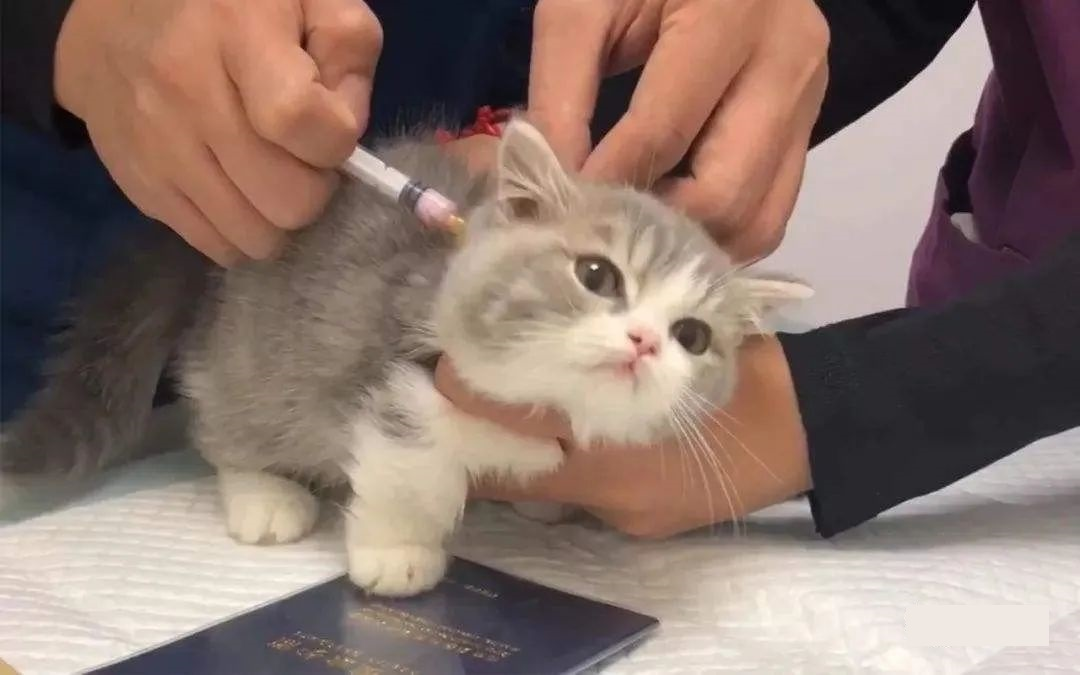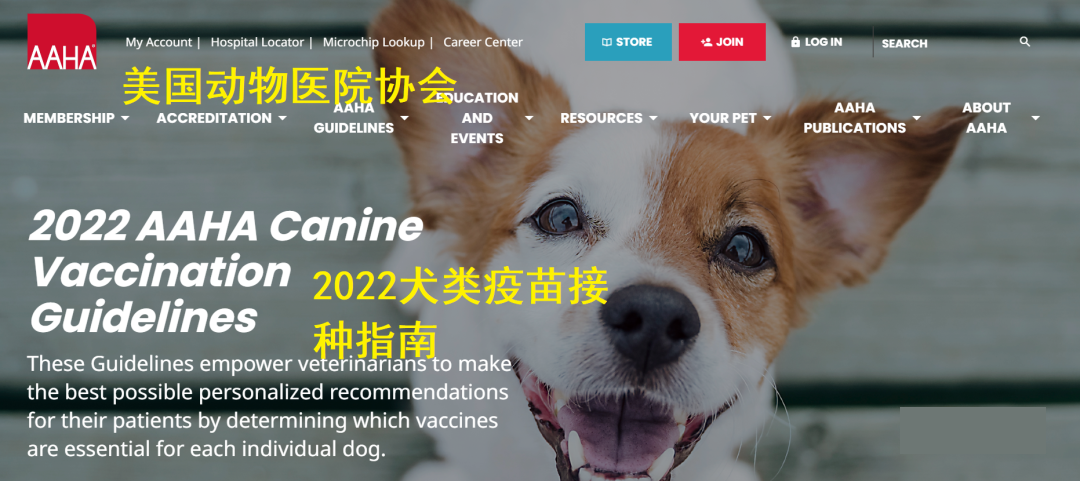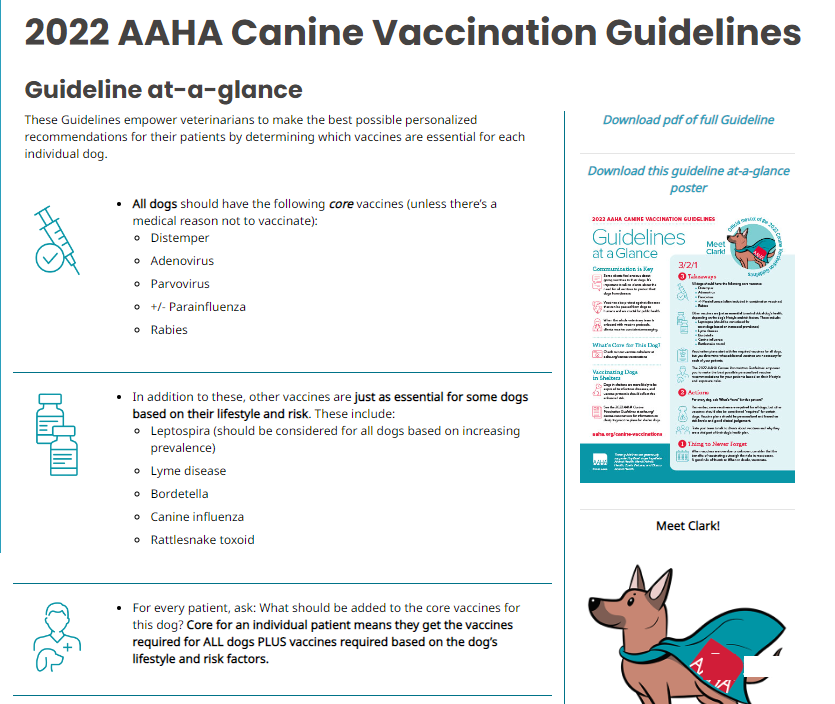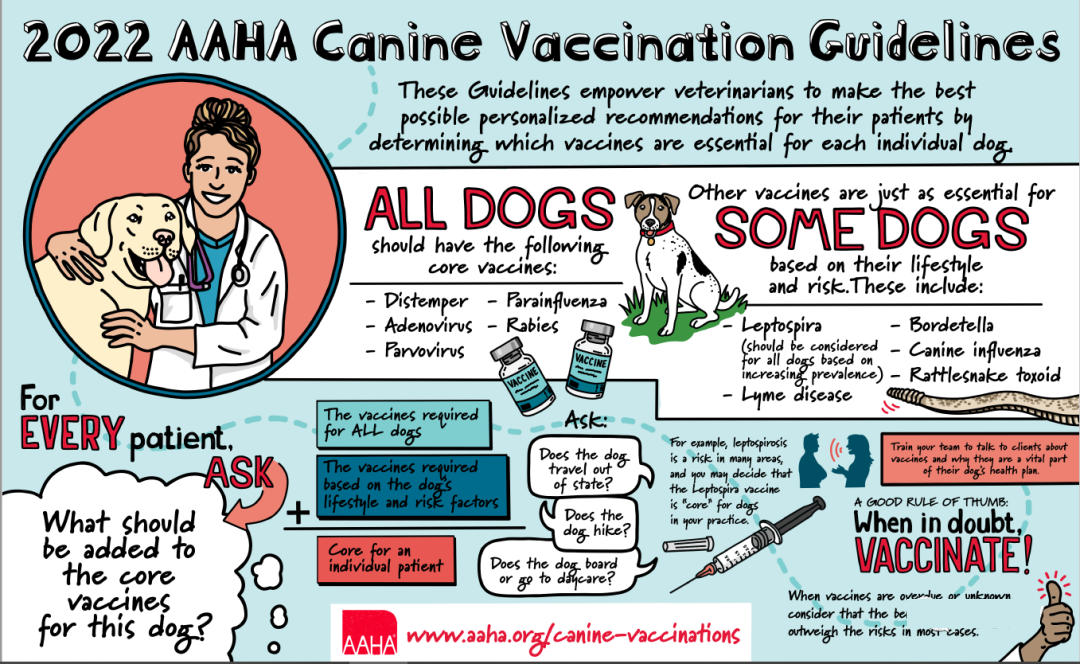1.Recently, pet owners often come to ask whether elderly cats and dogs still need to be vaccinated on time every year? First of all, we are online pet hospitals, serving pet owners all over the country. Vaccination is injected in local legal hospitals, which has nothing to do with us. So we won’t make any money with or without vaccination. In addition, on January 3, a 6-year-old pet owner of a large dog was just interviewed. He did not receive the vaccine again because of the epidemic for about 10 months. He went to the hospital for a trauma treatment 20 days ago, and then became infected. He was just diagnosed with nervous canine distemper, and his life was on the line. The pet owner is now doing everything possible to recover from the treatment. At first, no one thought that it would be canine distemper. It was suspected that it was hypoglycemic convulsion. Who could think of.
First of all, it must be clear that at present, all regular animal medical organizations believe that “pet vaccines should be given in a reasonable and timely manner to avoid over-vaccination”. I think the question of whether the elderly pets need to be vaccinated on time is definitely not the concern and discussion of domestic pet owners in China. It originated from the fear and worry of human vaccines in Europe and the United States, and then developed into pets. In the European and American veterinary industry, a special name for this is “vaccine hesitancy vaccine”.
With the development of the Internet, everyone can speak freely on the Internet, so a large number of ambiguous knowledge points have been infinitely enlarged. As for the vaccine problem, after three years of COVID-19, everyone knows clearly how low the quality of European and American people is, whether it is really harmful or not, in short, distrust is deeply rooted in the minds of many people, so that the World Health Organization will list “Vaccine hesitancy” as the number one threat in the world in 2019. Subsequently, the World Veterinary Association listed the theme of 2019 International Pet Knowledge and Veterinary Day as “the value of vaccination”.
I believe everyone will want to know whether it is really necessary to vaccinate the vaccine on time, even if the pet is old, or whether there will be persistent antibodies after several vaccinations?
2.Because there are no relevant policies, regulations and research in China, all my references are from two veterinary organizations over 150 years old, the American Veterinary Association AVMA and the International Veterinary Association WVA. The formal animal medical organizations around the world will recommend that pets be vaccinated regularly and in a proper amount.
In the United States, state laws stipulate that pet owners must vaccinate their pets against rabies on time, but do not force them to vaccinate other vaccines (such as quadruple and quadruple vaccines). Here we need to make clear that the United States has announced the complete elimination of all pet rabies viruses, so the purpose of vaccinating against rabies is to reduce the possibility of emergencies.
In January 2016, the World Small Animal Veterinary Association released the “Guidelines for Vaccination of Dogs and Cats in the World”, which listed the core vaccine for dogs including “canine distemper virus vaccine, canine adenovirus vaccine and parvovirus type 2 variant vaccine”, and the core vaccine for cats including “cat parvovirus vaccine, cat calicivirus vaccine, and cat herpesvirus vaccine”. Subsequently, the American Association of Animal Hospitals updated its contents twice in 2017/2018, The latest 2022 version states that “all dogs should be vaccinated with the following core vaccines, unless they cannot be vaccinated due to disease, canine distemper/adenovirus/parvovirus/parainfluenza/rabies”. In addition, it is specially suggested in the instructions that when the vaccine may be expired or unknown, the best rule of thumb is “if in doubt, please vaccinate”. It can be seen that the importance of pet vaccine in positive effect is far higher than the doubt on the network.
3.In 2020, the Journal of the American Veterinary Association specially introduced and trained all veterinarians, focusing on “How Veterinary Professionals Face the Challenge of Vaccination”. The article mainly provided some ideas and methods of dialogue, explaining and promoting to customers who believe that vaccines are potentially dangerous to their pet. The starting point of both pet owners and pet doctors is for the health of pets, but pet owners pay more attention to some unknown possible diseases, while doctors pay more attention to infectious diseases that may be directly faced at any time.
I have discussed the issue of vaccines with many pet owners at home and abroad, and I found a very interesting thing. The pet owners in Europe and the United States are most worried about “depression” caused by pet vaccination, while the pet owners in China are worried about “cancer” caused by pet vaccination. These concerns come from some websites that claim to be natural or healthy, in which they warn about the danger of over-vaccinating cats and dogs. But after so many years of tracing back to the source of the statement, no website has defined the meaning of over-vaccinating. One injection a year? Two injections a year? Or an injection every three years?
These websites also warn about the potential long-term harm of over vaccination, especially the possibility of immune system diseases and cancer. But so far, no institution or individual has provided any statistics on the incidence rate of diseases and cancer related to over vaccination based on tests or statistical surveys, nor has anyone provided any data to prove the causal relationship between over vaccination and various chronic diseases. However, the damage caused by these remarks to pets has been obvious. According to the UK Animal Welfare Report, the rate of initial vaccination of cats, dogs and rabbits in the UK during their infancy was 84% in 2016, and decreased to 66% in 2019. However, it also includes that the excessive pressure caused by the poor economy in the UK caused pet owners to have no money to vaccinate.
Some domestic doctors or pet owners may have read foreign pet journal papers directly or indirectly, but it may be due to incomplete reading or restricted by the English level, so they have some wrong understanding. They think that the vaccine will produce antibodies after several times, so they don’t need to vaccinate every year. The fact is, according to the American Veterinary Association, it is unnecessary for most vaccines to be vaccinated again every year. The key word here is “most”. As I said earlier, the World Small Animal Veterinary Association divides vaccines into core vaccines and non-core vaccines. The core vaccines are recommended to be vaccinated according to requirements, while the non-core vaccines are freely decided by pet owners. There are few domestic pet vaccines, so most people do not know what the non-core vaccines are, such as leptospira, Lyme disease, canine influenza, etc.
These vaccines have an immunity period, but each cat and dog has a different effect period due to different constitutions. If two dogs in your family are vaccinated on the same day, one may have no antibodies after 13 months, and the other can find effective antibodies after 3 years, which is individual difference. The vaccine can ensure that no matter what individual is vaccinated correctly, the antibody can be guaranteed for at least 12 months. After 12 months, the antibody may be insufficient or even disappear at any time. That is to say, if you want the cat and dog at home to have antibodies at any time and do not want to be vaccinated with the booster antibody within 12 months, you need to check whether the antibody exists frequently, for example, once a week or every month, Antibodies do not decline gradually but may decline precipitously. It is likely that the antibody met the standard one month ago, and it will be insufficient one month later. In the article a few days ago, we specifically talked about how two domestic dogs were infected with rabies, which is even more harmful for pets without vaccine antibody protection.
We particularly emphasize that all core vaccines do not say that there will be long-term antibodies after a few injections, and there is no need to vaccinate them later. There is no statistical, paper or experimental evidence to prove that timely and timely vaccination of the required vaccines will lead to cancer or depression. Compared with the possible problems caused by vaccines, poor living habits and unscientific feeding habits will bring more serious diseases to pets.
Post time: Feb-06-2023


